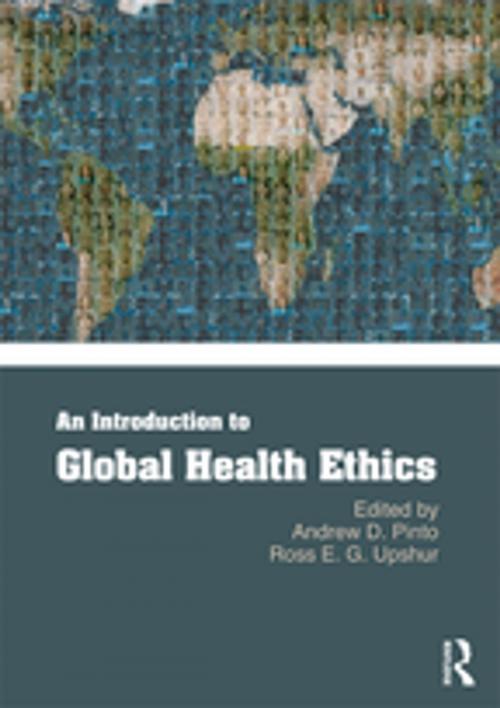An Introduction to Global Health Ethics
Nonfiction, Health & Well Being, Medical, Ailments & Diseases, Infectious Diseases, Epidemiology, Reference, Ethics, Social & Cultural Studies, Social Science| Author: | ISBN: | 9781136178016 | |
| Publisher: | Taylor and Francis | Publication: | March 5, 2013 |
| Imprint: | Routledge | Language: | English |
| Author: | |
| ISBN: | 9781136178016 |
| Publisher: | Taylor and Francis |
| Publication: | March 5, 2013 |
| Imprint: | Routledge |
| Language: | English |
The field of global health is expanding rapidly. An increasing number of trainees are studying and working with marginalized populations, often within low and middle-income countries. Such endeavours are beset by ethical dilemmas: mitigating power differentials, addressing cultural differences in how health and illness are viewed, and obtaining individual and community consent in research. This introductory textbook supports students to understand and work through key areas of concern, assisting them in moving towards a more critical view of global health practise.
Divided into two sections covering the theory and practice of global health ethics, the text begins by looking at definitions of global health and the field’s historical context. It draws on anti-colonial perspectives concepts, developing social justice and solidarity as key principles to guide students. The second part focuses on ethical challenges students may face in clinical experiences or research. Topics such as working with indigenous communities, the politics of global health governance, and the ethical challenges of advocacy are explored using a case study approach.
An Introduction to Global Health Ethics includes recommended resources and further readings, and is ideal for students from a range of disciplines – including public health, medicine, nursing, law and development studies – who are undertaking undergraduate and graduate courses in ethics or placements overseas.
The field of global health is expanding rapidly. An increasing number of trainees are studying and working with marginalized populations, often within low and middle-income countries. Such endeavours are beset by ethical dilemmas: mitigating power differentials, addressing cultural differences in how health and illness are viewed, and obtaining individual and community consent in research. This introductory textbook supports students to understand and work through key areas of concern, assisting them in moving towards a more critical view of global health practise.
Divided into two sections covering the theory and practice of global health ethics, the text begins by looking at definitions of global health and the field’s historical context. It draws on anti-colonial perspectives concepts, developing social justice and solidarity as key principles to guide students. The second part focuses on ethical challenges students may face in clinical experiences or research. Topics such as working with indigenous communities, the politics of global health governance, and the ethical challenges of advocacy are explored using a case study approach.
An Introduction to Global Health Ethics includes recommended resources and further readings, and is ideal for students from a range of disciplines – including public health, medicine, nursing, law and development studies – who are undertaking undergraduate and graduate courses in ethics or placements overseas.















